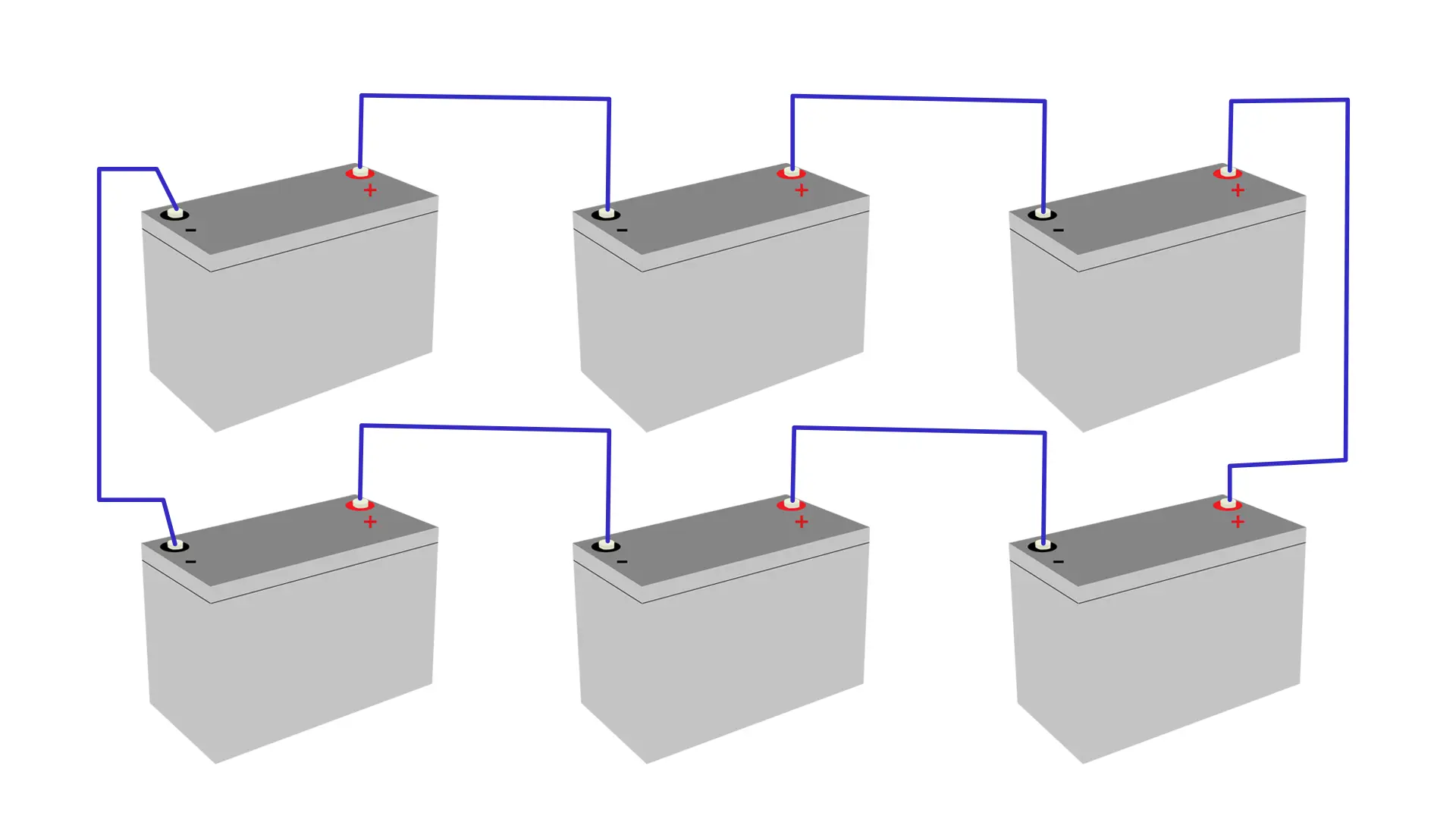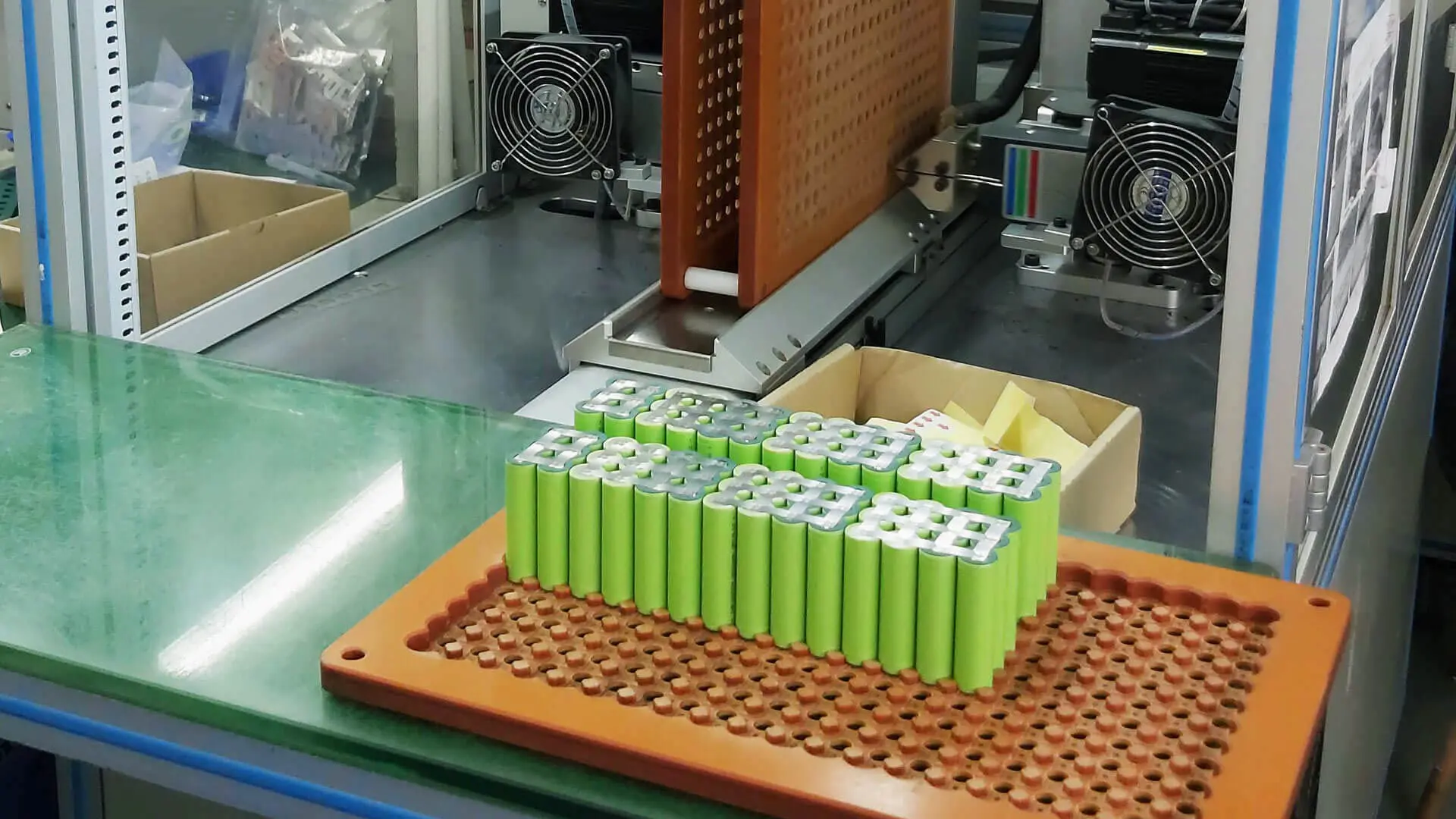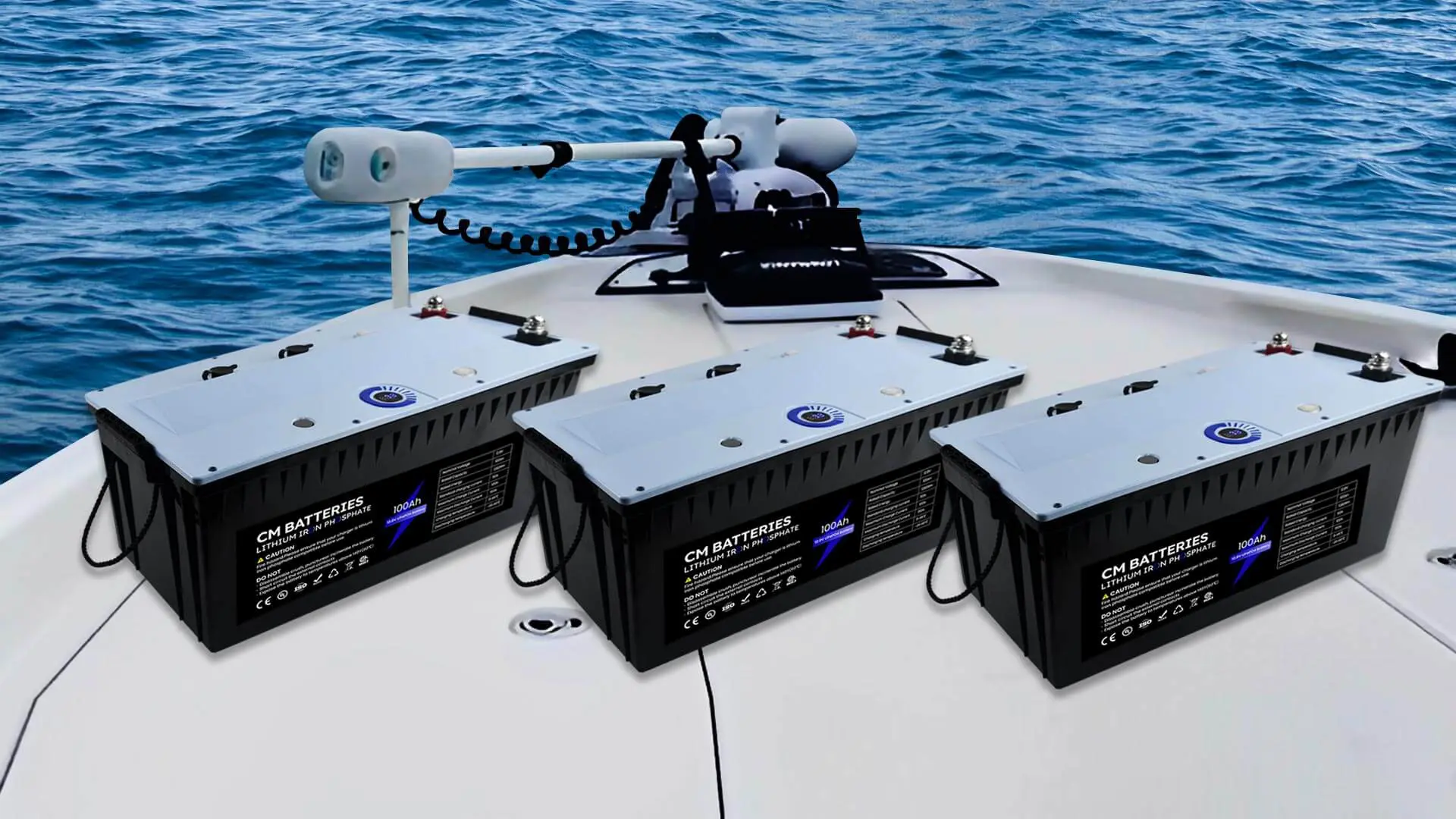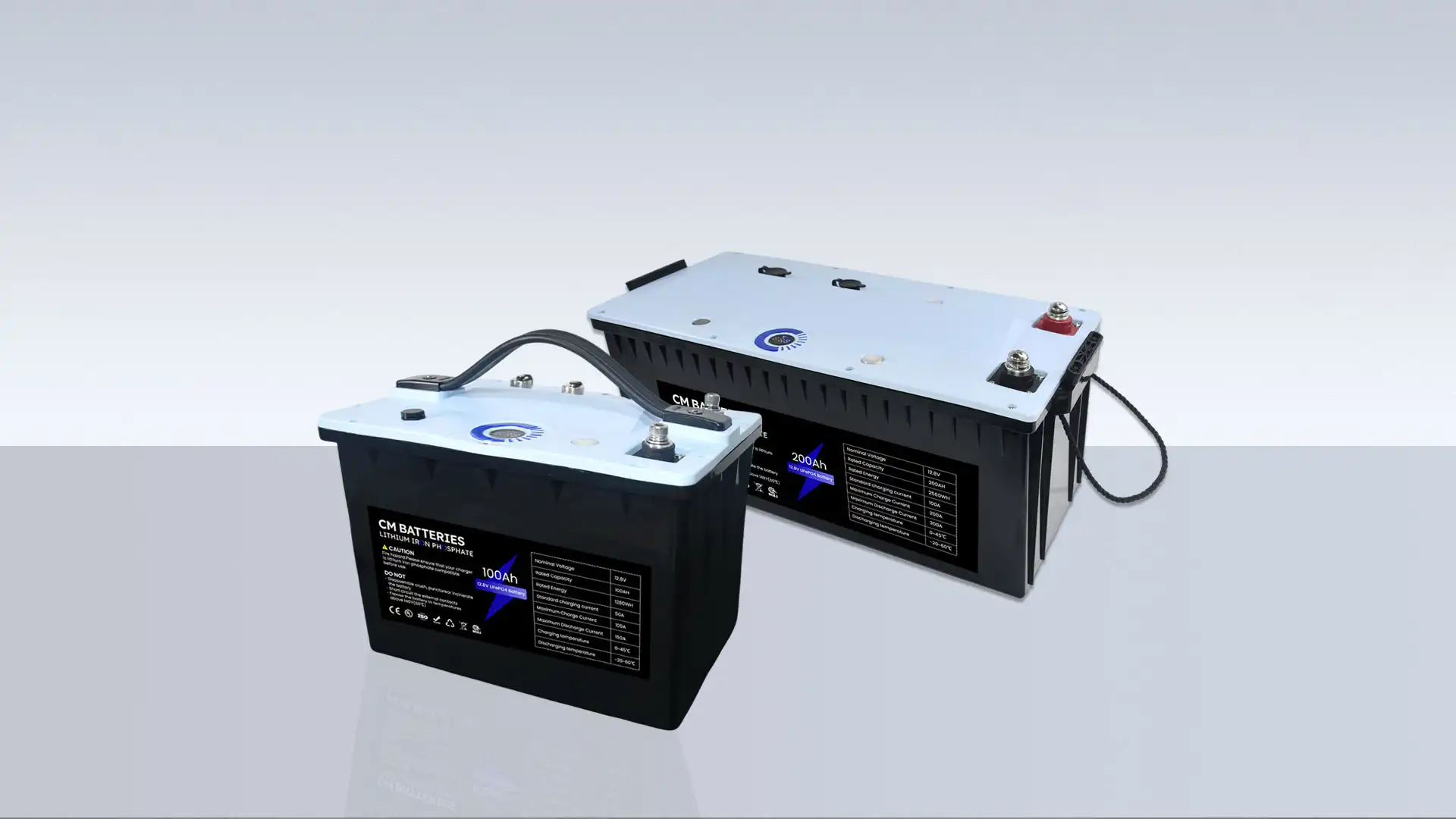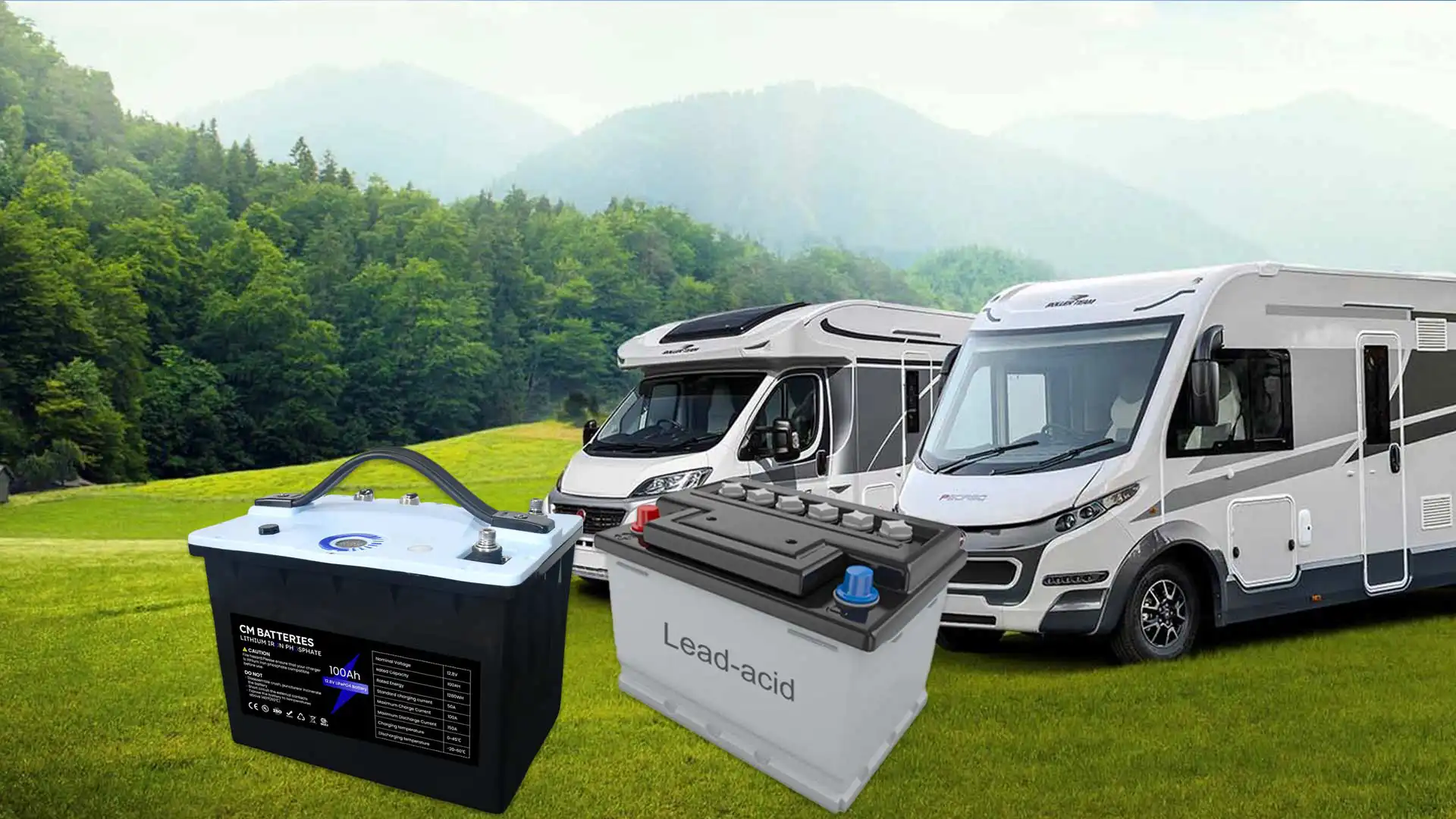As technology advances, more devices require high capacity or high voltage. Modular lithium iron phosphate batteries have emerged as an advanced energy solution, but this is not the only reason for its generation. Modular battery packs refer to the assembly of multiple cells into one or more battery modules, and then connecting multiple battery modules in series or parallel to increase capacity or voltage, forming a large battery pack.
In general, modular batteries are configured as standalone batteries which can be master or slave batteries. Next, we will explore the differences between lithium battery packs and modular battery packs, explore their pros and cons, and identify the most suitable applications, so that we can better understand the design concept of modular batteries.

What is the Difference between Custom Battery Pack and Modular Battery Pack?
The key difference between custom battery packs and modular battery packs lies in their flexibility and adaptability.
The Distinguishing Feature of Custom Battery Pack:
A custom battery pack is specifically designed and manufactured for a specific application or device and the custom li ion battery solution is unique. It is tailored to meet the specific power requirements, size limitations, and performance needs of the device. Custom battery packs are designed from concept and production. Each component needs slight customization even a special production process to ensure optimum performance and compatibility. They cost more and the custom battery pack manufacturer and customers should spend more time to reach an agreement on the custom battery pack design and battery pack assembly before the customer places the order.
The Core Feature of Modular Battery Packs:
On the other hand, a modular battery pack is a type of pre-designed and pre-engineered battery modular that can be easily combined to create a battery pack with the desired capacity and configuration. They are standardized and interchangeable, allowing for flexibility in design and quicker assembly.
Custom battery packs are tailored for specific applications, while modular battery packs make it easy to increase the voltage and capacity ranges in series and parallels.
CMB offers modular batteries in three standard voltage options: 12V, 24V, and 48V. They provide a variety of applications that require different levels of power. Additionally, CMB Engineering can provide custom modular battery pack solutions according to your specific needs.

What are the Pros and Cons of Modular Battery Packs?
Pros of Modular Battery Packs
Scalability: Modular battery packs allow for easy expansion or reduction by series and parallel. This flexibility enables the system to be tailored to changing energy storage requirements without replacing the entire pack.
Reliability: The modular design of battery packs increases reliability. If a single modular battery packs fail, they are isolated without affecting the entire system’s performance.
Easy Maintenance: Modular battery packs simplify troubleshooting and maintenance. When a problem occurs, it is easier to identify the faulty module and reduce the maintenance costs.
Discharge performance: High-speed charge/discharge performance of up to 5C can be achieved, and the BMS can realize high-power discharge with multiple control and protection functions.
Safety standards: With well-designed safety features in line with aviation safety standards, modular batteries prioritize safety as a paramount consideration, instilling confidence in their reliable performance.
Easy to Ship: The modular battery is easier to ship even if you can take the modular battery by plane when the modular battery is disassembled into smaller batteries.
Customization: Modular packs offer customization options. By connecting modules in series and parallel configurations, the overall energy capacity and power output can be scaled to meet specific application requirements.
Cons of Modular Battery Packs
Higher Cost: Compared to standard battery packs, modular battery packs can come with a higher upfront cost. The modular battery packs have a CMU control system, which increases the cost. The battery pack solution is built with a smart battery management system.
Complexity: Managing and monitoring a modular battery pack system can be more complex compared to the standard packs. The interconnection of modules and ensuring their proper functioning requires advanced monitoring systems.
More physical spaces: Modular battery packs have the potential to require more physical space compared to custom battery packs.
Compatibility: When expanding or replacing modules, compatibility issues may arise. Ensuring that new modules integrate properly with existing ones can require additional efforts in terms of compatibility testing and system integration.
It is important to consider the pros and cons when evaluating the suitability of modular battery packs for specific applications. While the advantages of scalability, reliability, and customization are significant, the potential drawbacks of higher cost, increased complexity, and space requirements need to be carefully weighed in each scenario.
What Popular Applications Are Modular Battery Pack Solutions Utilized For?
Modular battery packs play a crucial role in various specialized applications. Let’s explore some of these fields where modular batteries are incredibly valuable.
Communication Power System
- Communication Power System: In the realm of communication power systems, a reliable and continuous power supply is essential. With the support of modular batteries, communication systems can maintain their power requirements, even during emergencies.
- UPS System: UPS systems, which provide uninterrupted power supply, heavily rely on modular batteries. Separating them from the power supply is nearly impossible. That’s why modular batteries are vital to ensure a seamless power backup. In many installations, a dual power automatic transfer switch works in conjunction with lithium battery packs, ensuring smooth switching between different power sources
- Off-grid or on-grid systems: Off-grid and on-grid systems using solar power and PV cells need efficient energy storage. Traditional batteries often can’t meet the high demands, but modular lithium battery packs offer a flexible and effective solution. They store large amounts of solar energy, ensuring stable power even during low sunlight, and improving system reliability.
- Safety and protection systems: Safety and protection systems necessitate a continuous power supply. In the event of a power failure, a device capable of providing long-lasting and uninterrupted power is crucial. Modular batteries, with their reliability, become the top choice for these systems.
- Emergency lighting power: When it comes to emergency lighting power supplies, modular batteries excel, especially in field emergencies. They can sustain power supply for extended periods, ensuring safety and illumination.
- Portable medical equipment: Portable medical equipment poses a unique challenge as it needs to be carried around while meeting demanding power endurance requirements. This hurdle is easily overcome by utilizing modular batteries in these medical devices.
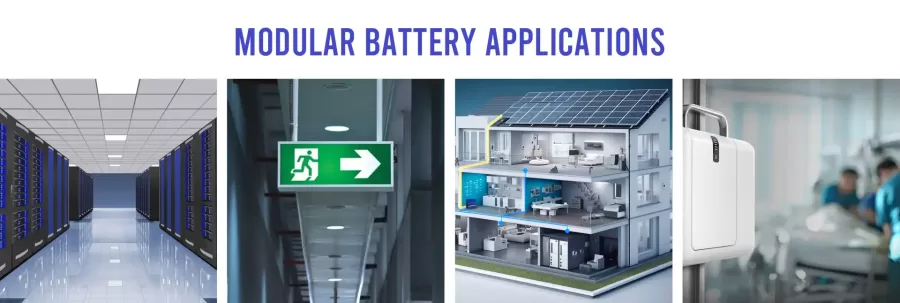
Modular batteries are used in various other fields, such as fast-charging, high-capacity, and high-voltage power supply equipment. As you know, the applications of modular batteries are extensive and versatile.
Are Modular Batteries Trending In the Market?
Modular batteries will be the trend, especially for automakers, and modular battery packs offer a compelling solution for automakers to meet the challenges of electric vehicle production. The combination of reduced costs, increased flexibility, and enhanced safety makes them a strong contender for future automotive battery technology. To design high-capacity lithium-ion battery packs, the battery pack manufacturer spends a lot of time on the design, safety, and qualification and even specialized battery-specific needs for different users. The modular batteries enable easy integration with innovative technologies and facilitate future upgrades or replacements. There are challenges to overcome, such as cost and complexity, while the advantages of modular battery packs will create a great future.
In conclusion, with their distinct advantages, including scalability, flexibility, and ease of maintenance, they offer a promising alternative to the standard battery packs. By identifying the best-suited applications and considering the industry’s interest in modular battery packs, it becomes evident that the technology has the potential to shape the future of energy storage. CMB as a leading modular battery pack designer and manufacturer, offers free customization services for B2B companies who are seeking tailored modular battery solutions. Please contact me if you have a request!


